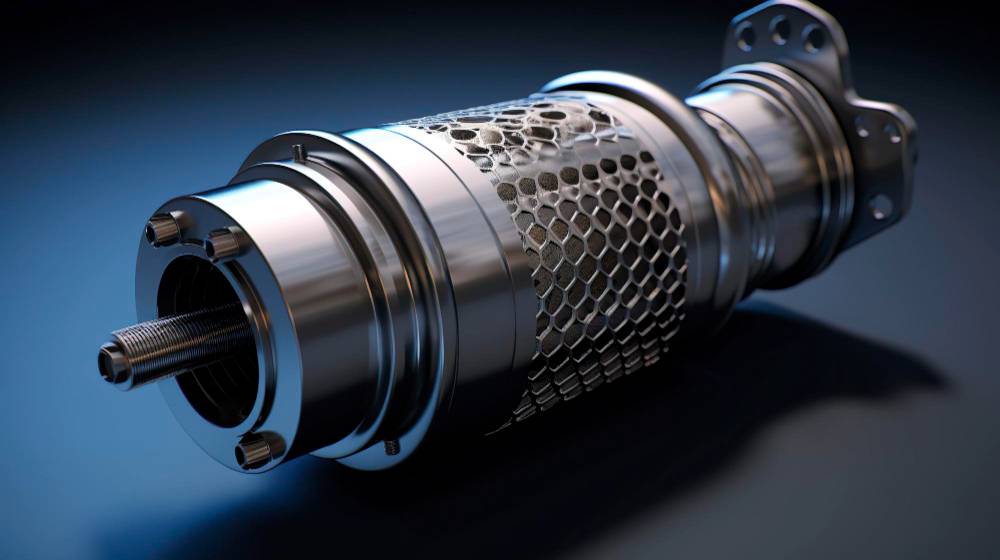Menu

Let’s face it: No one likes having to come out to visit the mechanic. While it’s our job to make sure your vehicle is running at peak performance, we also take it upon ourselves to educate our community on maintaining vehicles.
The topic of today’s conversation is not only important for car owners but everyone – drivers and non-drivers alike. In this brief article brought to you by Wrights Car Care, we direct our attention to the catalytic converter.
At its core, the catalytic converter is a device that sits in your car’s exhaust system. Its main job is to reduce harmful emissions produced by your engine. When your vehicle burns fuel, it generates toxic gases like carbon monoxide, nitrogen oxides, and hydrocarbons. These gases are harmful to both the environment and human health.
The catalytic converter uses a catalyst (usually made from precious metals like platinum, palladium, or rhodium) to chemically transform these dangerous gases into less harmful substances before they leave the exhaust system. By the time the exhaust exits your car, a lot of the bad stuff has been neutralized.
We’ve already touched on the catalytic converter’s role in reducing pollution, but it’s worth emphasizing. Cars and trucks are some of the largest sources of air pollution; without catalytic converters, the level of harmful emissions would be through the roof. These devices reduce smog in cities, minimize greenhouse gases, and cut down pollutants that can cause lung disease.
This brings us to the second reason catalytic converters are important: They are legal requirements. In the U.S., the Environmental Protection Agency (EPA) has strict guidelines that cars must follow, and the catalytic converter is key to meeting these standards. If your catalytic converter isn’t working properly, your car will likely fail an emissions test and you could be subject to fines and penalties.
There’s a selfish reason to look after the catalytic converter too! When the catalytic converter is not working as it should, you’ll have exhaust gases build up in the engine and result in sluggish acceleration, reduced fuel efficiency, and even engine overheating. It’ll have you looking for an auto repair shop before you know it!
The precious metals used inside catalytic converters (platinum, palladium, and rhodium) are worth quite a bit on the scrap market. This has made catalytic converter theft a profitable path for criminals. A stolen catalytic converter can cost you hundreds, if not thousands, of dollars to replace.
How can you protect yourself? Parking in well-lit areas, using security devices like catalytic converter shields, and having your VIN number etched into the converter can deter thieves or at least make it harder to sell the stolen part.
Under normal circumstances, catalytic converters can last 70,000 to 100,000 miles. However, things like poor vehicle maintenance, fuel contamination, or engine misfires can damage them prematurely. Your catalytic converter may be failing if you start to notice a rotten egg smell, sluggish performance, or a stubborn check engine light.
Remember, a stitch in time saves nine. If you suspect your catalytic converter is failing – or stolen – then visit an auto repair service sooner rather than later. Your friends at Wrights Car Care are here to take your call or message today.
Wright's Car Care offers the most reliable import and domestic auto repair services. Read our blog posts to learn more about your vehicle.
Nothing is more frustrating than a smelly car, especially if you can’t pinpoint the cause. If you didn’t leave an old fast-food bag behind, then chances are that it is…
READ MOREYour vehicle is more than just a means of transportation; it is an investment. With this in mind, taking a proactive approach toward routine care is key to ensuring high performance and longevity. However, automotive care usually comes down to maintenance and repair, which are used interchangeably but mean different things. At Wright’s Car Care, we believe that both auto repair and maintenance play a…
READ MOREEvery car owner knows that maintenance and repairs add up, but where you take your vehicle matters most. The cheapest…
READ MOREFor many car owners, visiting an auto repair shop in Atlanta, GA for the first time can be an…
READ MORE